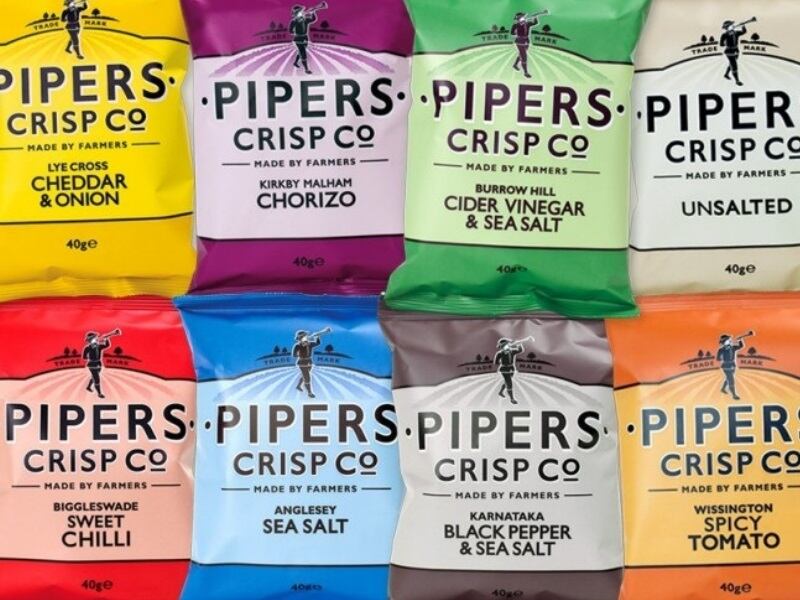The new system – provided by tna – has enabled the Lincolnshire-based snack maker to double its productivity yet still maintain product quality – if not increase it – simply by enhancing seal integrity.
According to Simon Hill, regional sales manager at tna, Pipers – like others in its field – too often experienced potato chips getting caught in the seal during packaging, which obviously compromised the seal’s integrity.
“When this occurs, it can often lead to product rejects and waste,” said Hill.
Vertical, form, fill & seal
The proactive UK potato chip producer approached tna – a global supplier of processing and packaging solutions with approximately 14,000 installed systems under its belt – that diagnosed the problem and recommended Pipers install two tna robag FX 3ci – vertical, form, fill and seal (VFFS) packaging solutions.
The entire system sports a rotary jaw design and a technology that improves seal performance, even at high speeds. It also features patented stripper tube closures, which allows for better control of the product during the packaging and filling cycle, which minimizes the risk of crumbs in the seal.
With the installation, Pipers also achieved its ambition to substantially increase its bagging speed. The company traditionally worked on a throughput speed of 80 bags per minute (bpm) for its smaller bags (40g), but growing demand has prompted a high output.
Tna’s two robag FX 3ci are high-speed baggers that feature the world’s shortest vertical product transfer from the scale to the pack.
As a result, the new setup means Pipers can now package a variety of bag sizes (40g and 150g) at speeds of up to 140 bpm – a 75% increase.
It also cuts out lengthy changeover times, as it houses lightweight formers, which means that operators can easily switch from one bag size to another on the same packaging line.
To top that, the solution was customized for the company with a product-in-seal-detection (PISD) software that monitors product in the seal and jaw area. If seal integrity is compromised, the system immediately alerts the operator so that bags can be quickly removed from the line for further inspection.
That way, Pipers Crisps can ensure each bag meets its standards, and waste can be kept to a minimum.
From 3% to 1% waste
“Before the installation, we experienced 3% wastage at 80 bpm, as we had to manually detect and remove any bags with compromised end seals or pleats before they entered the packaging area,” said Richard Mottram, Pipers’ factory manager.
“Now, our wastage is down to 1% at 140 bpm – which has surpassed our expectations. As a result, it has helped us gain better control over product losses and achieve operational cost savings, while contributing to quality assurance.”

